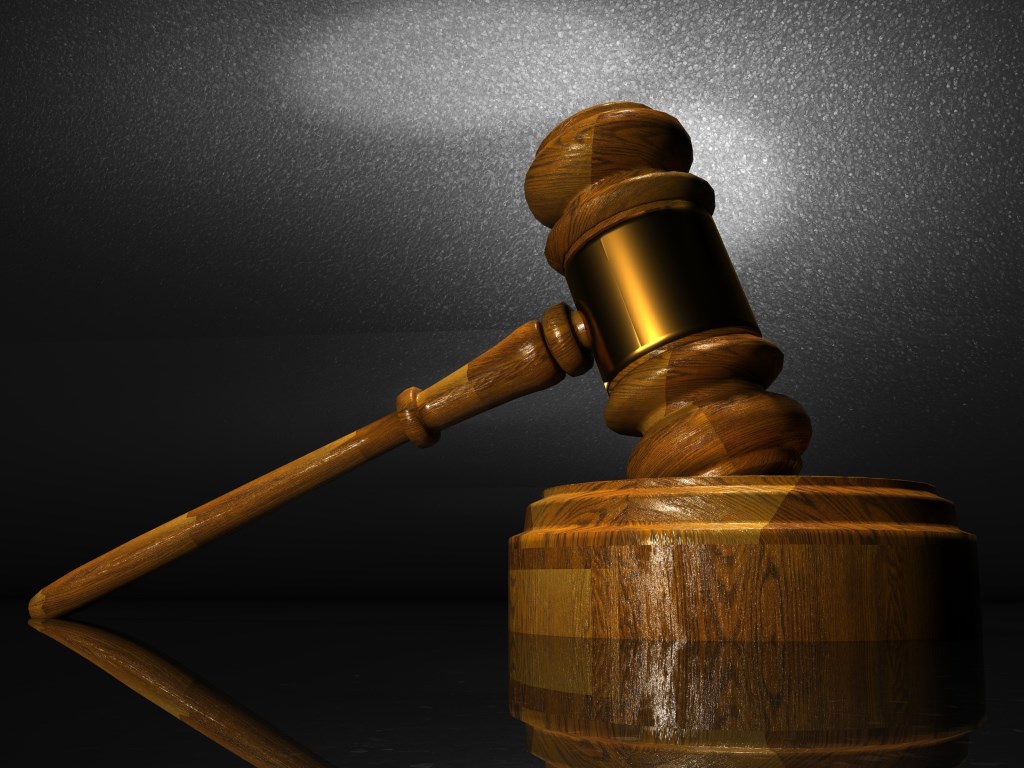Appeals Court Nixes Post-Polygraph Confession
Officers repeatedly told suspect he failed lie detector but didn’t explain results can't be used in court.
Two officers who repeatedly told a suspect that he failed a detector test but failed to tell him the results of that test could not be used in court were key to creating the coercion that invalidated the man’s eventual confession, a State Court of Appeals panel has ruled.
“In particular, we caution law enforcement officers that if they plan to rely on polygraph results in order to elicit a defendant’s confession, they need to inform the defendant that those results are inadmissible in court,” Appeals Judge Lisa K. Stark wrote for the divided District III Court of Appeals panel.
The State Supreme Court has questioned the reliability and accuracy of the tests, she said.
The ruling upheld a decision by Washburn Circuit Judge John P. Anderson to suppress the confession.
Stark’s decision was joined by Appeals Judge Mark A. Seidl; Appeals Judge Thomas J. Hruz dissented.
“I conclude the conduct of the two officers imposed only minimal psychological pressures upon (defendant Adam W. Vice) and was within the boundaries of what due process tolerates for police questioning,” Hruz wrote. “Certainly, overt coercion is absent.…As for ‘other improper police conduct,’ I see nothing of the sort.”
Vice asked if there was anything he could do to clear his name and Fisher suggested taking a lie detector test.
Fisher drove Vice to Eau Claire, where the polygraph test was administered by Eau Claire Police Detective Ryan Lambeseder. Lambeseder read Vice his Miranda rights, including the warning that any statement he made could be used against him, and Vice consented in writing to the polygraph.
The exam itself took about one hour and 45 minutes, Stark wrote. Afterward, Fisher and Lambeseder questioned Vice in an interview room. Vice was not handcuffed.
“Lambeseder asked Vice how he thought he did on the polygraph examination,” Stark wrote. “Vice responded, ‘I don’t know. I know for a fact that I’m telling the truth when I was telling the truth.’”
Lambeseder told Vice, who was in special education classes and high school and had minimal previous contact with police, that he had not passed the examination that it was “very clear” Vice was not telling the truth.
”And so that’s where, Adam, we want to talk about that, okay? We want you to–this has been weighing on you, and I can tell,” Lambeseder said. “And I can tell on that exam, okay?”
“I’ll take that test again,” Vice responded, according to the opinion. “I do not remember doing this. I honestly do…and I will take the test, but… — but — but obviously I failed the test. Something’s wrong. Is there a way or is it any possibility that I — somehow I blacked out and not remember this? … Because right now I feel like I’m having a heart attack.”
“You do remember doing it, otherwise you wouldn’t react the way you did on the exam, okay?” Lambeseder said.
Vice continued to say he did not remember assaulting the girl and the officers continued to say the test results showed he did remember. Fisher eventually told Vice that if he did not take responsibility for the assault, the judge and district attorney might think he was a danger to the community and that children needed to be protected from him.
However, if the assault was an “isolated mistake,” “they can say okay, we can allow him to be in the community,” Fisher said.
In all, the officers referred to the polygraph seven or eight times in the first eight minutes of the interview, Stark said. Eventually, Vice said he assaulted the girl, but denied any memory of it.
Lambeseder asked Vice whether he could explain his actions.
“No. I cannot,” Vice said. “I honestly can’t…My whole body’s reacting to it. Why can’t I …remember?”
“I would tell you if I knew, but I … I’ll admit that I must have did it because obviously the test says that I did it, but I don’t physically remember,” he said.
The officers gave Vice helpful hints, asking him if he committed specific acts, such as touching the girl in a particular way on a particular part of her body.
Vice said he had vague memories of doing the things the officers described, but said the memories were “like a dream” or déjàvu, Stark wrote.
The decision to uphold the suppression ruling was a “close case,” Stark wrote. While Vice was in special education classes, he did graduate from high school. The police questioning after the polygraph lasted about 45 minutes; Vice was not restrained; and the officers did not speak harshly to him.
“Standing alone, the officers’ repeated references to the polygraph results, while concerning, may not have caused us to conclude Vice’s confession was involuntary,” Stark wrote. “In addition to those repeated references, however, the officers never informed Vice – who had little experience with law enforcement – that the polygraph results would be inadmissible in any criminal proceedings against him….Vice’s overall impression was that the polygraph results proved he assaulted the victim, and those results could be used against him in court. On these facts, we cannot conclude that Vice’s confession was ‘the product of a free and unconstrained will, reflecting deliberateness of choice,’” the standard for a voluntary confession.
Stark recounted well-known and documented concerns about the reliability and accuracy of polygraph tests.
“This backdrop is critical to our analysis in the instant case,” she wrote. “It is due to serious concerns about the reliability of polygraph evidence that our supreme court deemed that evidence inadmissible in criminal proceedings….The officers therefore used the results of a test whose reliability is subject to serious doubt in order to elicit an incriminating response from Vice, without informing him of the inadmissibility of the test’s results. Under these circumstances, we conclude the officers’ conduct was unduly coercive.”
Vice was represented on appeal by attorney Frederick Bechtold.
Gretchen Schuldt writes a blog for Wisconsin Justice Initiative, whose mission is “To improve the quality of justice in Wisconsin by educating the public about legal issues and encouraging civic engagement in and debate about the judicial system and its operation.”
Court Watch
-
No Unemployment Benefits For Worker Making Homophobic Remarks
 May 17th, 2022 by Gretchen Schuldt
May 17th, 2022 by Gretchen Schuldt
-
Appeals Court Upholds Injunction Against Abortion Protester
 Mar 13th, 2022 by Gretchen Schuldt
Mar 13th, 2022 by Gretchen Schuldt
-
80% of State’s Judicial Races Uncontested
 Feb 20th, 2022 by Gretchen Schuldt
Feb 20th, 2022 by Gretchen Schuldt






















